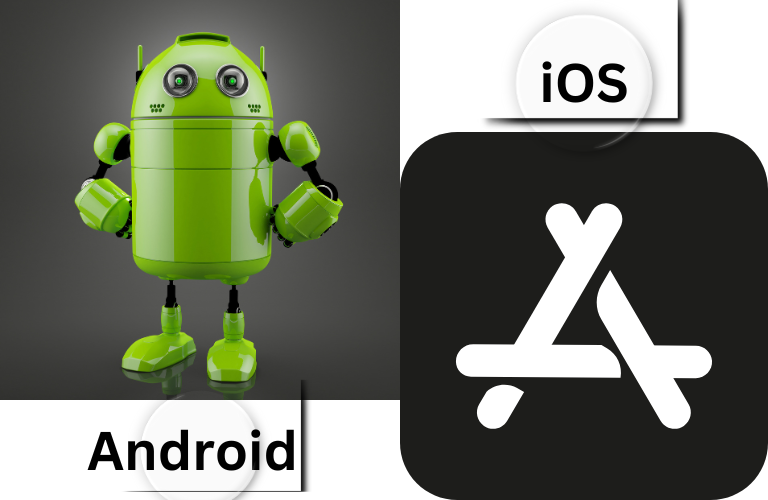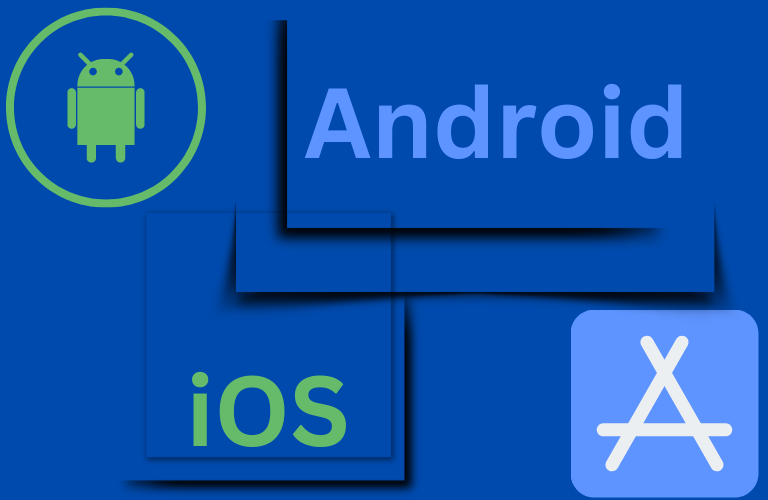Android and iOS reign as global mobile giants, each flaunting distinct merits and demerits, shaping user experiences with unparalleled prowess and the occasional stumble. In this article, we will delve into the pros and cons of both Android OS and iOS to help users make an informed decision when choosing a mobile device.
Pros of Android Operating System:
1. Open Source Nature: Android is an open-source platform, allowing developers to modify the source code and create custom versions of the operating system tailored to specific needs.
2. Customization Options: Android offers extensive customization options, allowing users to personalize their devices with widgets, themes, and third-party launchers.
3. Wide Range of Device Options: Android is available on a diverse range of devices, from budget-friendly smartphones to high-end flagship models, offering users plenty of choices to suit their preferences and budget.
4. Google Integration: Android seamlessly integrates with Google services such as Gmail, Google Drive, and Google Maps, providing users with easy access to essential productivity tools and services.
5. Affordability: Android devices are available at various price points, making them more accessible to users with different budget constraints compared to iOS devices.
6. Greater Flexibility: Android offers greater flexibility in terms of file management, app installation, and system customization, empowering users to tailor their devices to meet their specific needs.
Cons of Android Operating System:
1. Fragmentation Issues: Android fragmentation refers to the diversity of devices running different versions of the operating system, leading to compatibility issues and delays in software updates.
2. Security Concerns: Android is often criticized for its susceptibility to malware and security vulnerabilities, especially on devices running outdated software versions or from less reputable manufacturers.
3. Performance Variability: The performance of Android devices can vary significantly depending on factors such as hardware specifications, software optimization, and manufacturer customizations, leading to inconsistent user experiences.
4. Inconsistent User Experience: The user experience on Android devices can vary significantly between different manufacturers and device models, as each may come with its own user interface, pre-installed apps, and additional features.
5. Dependency on Manufacturers for Updates: Android device manufacturers are responsible for releasing software updates, which can result in delays or lack of updates for certain devices, leaving them vulnerable to security threats and missing out on new features.
6. Bloatware: Android devices often come pre-installed with unnecessary apps and services, commonly referred to as bloatware, which can clutter the user interface and consume storage space.

Pros of iOS:
1. Seamless Integration with Apple Ecosystem: iOS offers seamless integration with other Apple products and services, such as iCloud, iMessage, and Apple Music, providing a cohesive user experience across devices.
2. Enhanced Security Features: iOS is known for its robust security features, including hardware and software encryption, app sandboxing, and regular security updates, making it less susceptible to malware and security threats.
3. Consistent User Experience: iOS devices offer a consistent user experience, with a unified design language, intuitive interface, and optimized performance across different device models.
4. Regular Software Updates: Apple provides regular software updates for iOS devices, delivering new features, performance improvements, and security patches to users promptly, ensuring they have access to the latest advancements.
5. High-Quality App Store: The Apple App Store is known for its curated selection of high-quality apps and games, stringent review process, and emphasis on user privacy and security, providing users with a safe and reliable app ecosystem.
6. Optimized Performance: iOS is optimized to run efficiently on Apple hardware, resulting in smooth performance, faster app loading times, and better battery life compared to some Android devices.
Cons of iOS:
1. Closed Ecosystem: iOS is a closed ecosystem, tightly controlled by Apple, limiting customization options and restricting users’ ability to modify system settings or install apps from third-party sources.
2. Limited Customization Options: iOS offers limited customization options compared to Android, with users unable to personalize the home screen layout, install custom fonts, or use third-party widgets to the same extent.
3. Higher Cost of Devices: iOS devices, particularly iPhones and iPads, tend to be more expensive than their Android counterparts, making them less accessible to users with limited budgets.
4. Dependency on Apple Products: iOS users are heavily dependent on other Apple products and services to fully utilize the ecosystem, which can be a barrier for users who prefer non-Apple devices or services.
5. Compatibility Issues with Non-Apple Devices: iOS devices may encounter compatibility issues when interacting with non-Apple devices or services, such as Bluetooth accessories, smart home devices, or cross-platform apps.
6. Strict App Store Guidelines: Apple enforces strict guidelines for app developers on the App Store, which can lead to app rejections, limited features, or delays in app updates, impacting the overall user experience.
Comparison between Android OS and iOS:
1. Market Share and Popularity: Android dominates the global smartphone market in terms of market share and device shipments, while iOS maintains a loyal user base and higher profit margins.
2. Target Audience and Demographics: Android appeals to a diverse audience, including budget-conscious consumers and tech enthusiasts, while iOS users tend to be more affluent and brand loyal.
3. App Development and Monetization: Android offers more flexibility and lower barriers to entry for app developers, while iOS users generally spend more on apps and in-app purchases, making it an attractive platform for developers.
4. User Interface and User Experience: Android offers a more customizable user interface, while iOS provides a consistent and intuitive user experience across devices.
5. Hardware Compatibility: Android is available on a wide range of devices from various manufacturers, while iOS is exclusive to Apple devices, offering tighter integration between hardware and software.
6. Security and Privacy: iOS is known for its robust security features and strict privacy policies, while Android offers greater freedom and openness but may be more susceptible to security threats.
Conclusion:
In conclusion, both Android OS and iOS have their strengths and weaknesses, catering to different user preferences and requirements. The choice between the two operating systems ultimately depends on factors such as personal preference, budget, ecosystem integration, and app availability. By weighing the pros and cons of each platform, users can make an informed decision to select the operating system that best suits their needs.




